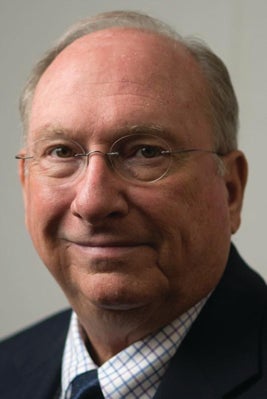FOUNDATION FORWARD, CHARTER OF FREEDOM: Robert Treat Paine
This is an American history educational moment of those who made a difference during the Revolutionary War era and how they served the country.

David Streater
Robert Treat Paine was a Founding Father known for having a complex personality and earned the nickname “The Objection Maker.”
Born in Boston in 1731, Robert was known as “Bob” and was destined to become a servant-leader. He was a gifted student educated at Boston’s Latin School and graduated from Harvard at 18. Bob studied religion; his family expected him to follow their history and become a minister, but he chose instead to be a schoolteacher.
Paine taught school but realized that teaching was not his strength.
In the mid-1750s, Robert was the provisional chaplain of the Assault of Fort Saint-Frédéric, Crown Point, New York. Living at the fort turned out to be an awakening and helpful experience for Bob in the future. This involvement gave Paine a valuable taste of military life and its requirements. With life’s lessons combined with his poor health, Bob chose to work as a merchant marine, hoping outdoor work and the salt air would aid his health as he sailed along the East Coast and to Europe.
After returning to America, Paine studied law and became an attorney. He prosecuted British soldiers who murdered defendants from the Boston Massacre. Being the prosecutor in this trial began Paine’s political involvement and the quest for democracy. During the 1770s, Bob had several joyous events: In 1770, he married Sally Cobb, and they went on to have eight children.
Paine was elected to the Massachusetts legislature in 1773 and soon was assigned to the Continental Congress. Some of his duties included acquiring gunpowder for the Continental Army and signing the Olive Branch Petition to England. As Paine objected to all Congressional proposals except his own, his peers called him “The Objection Maker.” During this time, Paine chaired the Committee on Ordnance. Most importantly, he signed the Declaration of Independence.
After his return to Massachusetts, Robert was the first attorney general (1777-1790) and later helped create the constitution of Massachusetts (1780). Also, in 1780, owing to his interest in astronomy, he became a charter member of the American Academy of Arts and Sciences. Paine led the prosecution of insurrectionists involved in Shay’s Rebellion, an uprising in the Massachusetts countryside during 1786-1787; a debt crisis brought it on at the end of the American Revolutionary War.
This great American patriot accepted an appointment to the state’s supreme court in 1790 and remained a justice until his retirement in 1804.
Robert Treat Paine died on May 11, 1814, at age 83 and was buried in the Granary Burying Ground, Boston, Massachusetts.
Please visit your Charters of Freedom at 144 N. 2nd St., Albemarle. A Charters of Freedom setting consists of the Declaration of Independence, the United States Constitution and the Bill of Rights. Visit (FoundationForward.com) to learn more.
Teachers are encouraged to contact Streater for info and complementary student education materials to enhance experiential field trips to a Charters of Freedom settings. Email Streater (david.streater@mymail.barry.edu) for engraved legacy paver info and complementary educational materials.
Dr. David Streater is the director of education for Foundation Forward, the organization which placed life-size replicas of the United States Constitution, Declaration of Independence and the Bill of Rights, also known as the Charters of Freedom, in downtown Albemarle. He is a retired college instructor/administrator and a retired probation and parole officer/administrator. In addition, he is a criminologist with an acute history interest, served in the Navy, is a resident of Burke County and is a graduate of Pfeiffer University.

